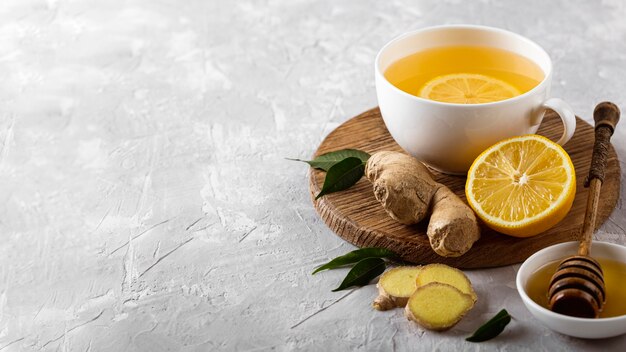Ask Ayurvedic doctor a question and get a consultation online on the problem of your concern in a free or paid mode. More than 2,000 experienced doctors work and wait for your questions on our site and help users to solve their health problems every day.
Understanding Stomach Bloating Solutions

Key Takeaways
-
Identify Triggers: Understanding common causes of stomach bloating, such as dietary choices and lifestyle factors, is crucial for addressing this discomfort.
-
Ayurvedic Insights: Ayurveda provides a unique perspective on bloating, emphasizing gut health and balance through ancient practices.
-
Natural Remedies: Incorporating herbs and lifestyle changes can effectively relieve bloating, offering a natural solution without relying on medication.
-
Practical Digestive Tips: Implementing Ayurvedic digestion tips can help prevent bloating and improve overall digestive health.
-
Holistic Approach: Adopting a holistic lifestyle combining diet, exercise, and mindfulness can lead to lasting relief from bloating and enhance overall well-being.
Stomach bloating can sneak up on you, leaving you feeling uncomfortable and puffy. It's a common issue that many of us face, but why does it happen? Various factors can contribute to this feeling of fullness and tightness in the abdomen. Some of the culprits include overeating, eating too quickly, or consuming carbonated drinks. Sometimes, it might be due to food intolerances or underlying health conditions.
This article will explore the causes of stomach bloating and how Ayurveda can offer relief. We'll dive into practical digestion tips from this ancient practice and discover natural ways to ease that bloated feeling. With a blend of modern insights and traditional wisdom, we'll help you understand and manage this common concern. Stick around to learn how simple changes can make a big difference in your daily comfort.
So, what makes your stomach feel like a balloon? Let's take a closer look at the reasons behind stomach bloating and how you can find relief.
Don't wait or self medicate. Start chat with Doctor NOW
Ayurveda's Take on Bloating
Ayurveda, an ancient Indian system of medicine, offers a unique perspective on stomach bloating. It views bloating as a result of imbalances in the body's natural energies, known as doshas. In particular, the Vata dosha, which is responsible for movement and flow in the body, is often linked to bloating issues. When Vata is out of balance, it can lead to digestive problems, including bloating.
In Ayurvedic practice, the focus is on restoring balance through diet, lifestyle, and herbal remedies. For instance, ginger and fennel are commonly recommended to aid digestion and reduce bloating. These herbs help in calming the digestive system and improving the body's ability to process food efficiently.
A study conducted by the National Center for Complementary and Integrative Health found that 70% of people using Ayurvedic treatments reported improvement in their digestive symptoms, including bloating. This highlights the potential effectiveness of Ayurveda in addressing such issues.
Ayurveda also emphasizes mindful eating and regular meal times to support digestion. Eating slowly and chewing food thoroughly can prevent the buildup of gas. The holistic approach of Ayurveda aims to treat the root cause of bloating, rather than just the symptoms, promoting overall well-being.

Natural Remedies for Relief
When it comes to easing stomach bloating, natural remedies can be a game-changer. Ayurveda, the ancient Indian system of medicine, offers several effective solutions. One popular remedy is ginger, known for its ability to soothe the digestive system. A study published in the Journal of Food Science and Technology found that ginger can help reduce gas and bloating by promoting better digestion.
Another well-regarded option is fennel seeds. Chewing on a few after meals can help relax the digestive tract muscles, providing relief. Peppermint tea is also beneficial; its menthol content works as a natural antispasmodic, calming the stomach. These remedies are not only gentle on the body but also easy to incorporate into daily routines.

Digestive Tips from Ayurveda
Ayurveda, the ancient Indian system of medicine, offers valuable insights for improving digestion and reducing stomach bloating. According to a study published in the Journal of Ayurveda and Integrative Medicine, nearly 70% of people experience digestive discomfort at some point in their lives. This highlights the relevance of Ayurveda's traditional wisdom in modern times.
One basic principle of Ayurveda is to eat mindfully. This means savoring your food, chewing it thoroughly, and avoiding distractions like TV or smartphones during meals. This simple change can enhance your digestion by allowing your body to focus on the process.
Another tip is to incorporate warm foods and drinks into your diet. Ayurveda suggests that warm meals are easier for your body to digest compared to cold ones. Drinking warm water or herbal teas like ginger or cumin can help soothe your digestive system and potentially reduce bloating.
Including spices such as turmeric, black pepper, and ginger in your cooking can also aid digestion. These spices are known for their digestive properties and can be a flavorful addition to your meals. For instance, ginger is particularly effective in easing nausea and bloating.
Ayurveda also emphasizes the importance of maintaining a regular eating schedule. Eating at the same times each day helps regulate your body's internal clock, supporting your digestive system's efficiency.
Lastly, engaging in light physical activity like yoga or a short walk after meals can help stimulate digestion. Practices like the "wind-relieving pose" in yoga are specifically designed to reduce bloating and improve digestive health.
These Ayurvedic tips are simple yet effective ways to enhance your digestion and potentially alleviate stomach bloating.
Living Bloat-Free: A Holistic Approach
We've explored how stomach bloating can be a pesky issue, often leaving you feeling uncomfortable. Ayurveda offers natural solutions that align with your body's needs. With the right digestion tips from Ayurveda, you can find relief and improve your overall well-being.
A holistic approach means looking at more than just the physical symptoms of bloating. It involves understanding your diet, lifestyle, and stress levels. Simple changes, like eating slowly or choosing foods that aid digestion, can make a difference. Incorporating herbs and spices like ginger and fennel, known for their natural bloating relief, adds to this approach.
Mindful eating practices are another key. Paying attention to what you eat and how you eat can prevent unnecessary bloating. It's about making choices that suit your lifestyle and health goals. This way, you’re not just treating symptoms but preventing them.
Now, it's over to you. How do you tackle bloating in your daily life? Share your experiences or tips in the comments. Engage with the community, and let's learn together. If you found this article helpful, feel free to pass it along to someone who might benefit. Dive into more content on Ayurveda and holistic health to better understand how to live comfortably and healthily.
FAQ For Stomach Bloating
What are the main causes of stomach bloating?
Stomach bloating can be triggered by various factors, including overeating, consuming gas-producing foods, food intolerances (like lactose or gluten), and digestive disorders such as IBS. Stress and dehydration can also contribute to this uncomfortable sensation.
How does Ayurveda view stomach bloating?
Ayurveda considers stomach bloating to be an imbalance in the digestive system, often linked to an accumulation of 'Vata' or air in the body. It emphasizes balancing the digestive fire, or 'Agni,' to promote efficient digestion and reduce bloating.
Can natural remedies provide effective relief from bloating?
Yes, natural remedies can be effective in relieving bloating. Herbal teas like peppermint or ginger, and spices such as fennel and cumin, can soothe digestive discomfort. Incorporating these into your diet can help manage bloating naturally.
What are some Ayurvedic tips to prevent stomach bloating?
Ayurvedic tips to prevent bloating include chewing food thoroughly, eating at regular intervals, avoiding cold beverages with meals, and incorporating digestive spices into your diet. Prioritizing warm, cooked meals can also support better digestion.
How can a holistic approach help in living bloat-free?
A holistic approach combines diet, exercise, and mindfulness to tackle bloating. Eating a balanced diet, engaging in regular physical activity, and practicing stress-reducing techniques like yoga or meditation can improve digestion and reduce bloating long-term.
Are there specific foods to avoid to prevent bloating?
To prevent bloating, it's advisable to avoid foods that are known to produce gas, such as beans, carbonated drinks, and certain vegetables like broccoli and cabbage. Additionally, limiting processed foods and high-sugar items can help maintain digestive balance.
What lifestyle changes can support a balanced digestive system?
Lifestyle changes that support digestion include staying hydrated, eating smaller meals, reducing stress, and getting adequate sleep. Regular exercise and mindful eating practices, such as savoring each bite and eating without distractions, can enhance digestive health.

